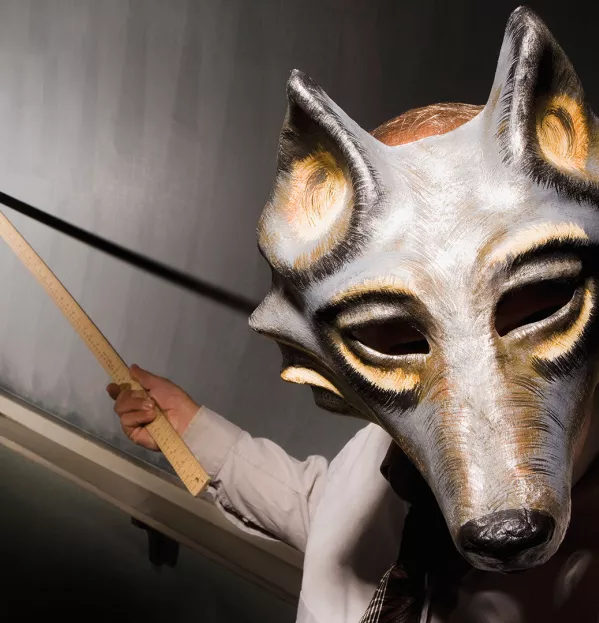I am not a monster. I feel I need to make that clear, because what I am going to say next may lead you to incorrect conclusions about me.
Here I go: I believe every school needs a teacher who scares kids.
Yes, out of context, that seems controversial. Indeed, as a young teacher, such a statement would have set me off on a tirade about child-centred care and the need for relationships built on mutual trust. But to achieve both of these, I’ve come to understand that a school needs a monster lurking in the corridors.
Let me explain. In my youth, I did not believe in the need for an old-school teacher who walked around the place making even the most challenging students shake with fear. Although I knew the intimidation was never physical (indeed, rarely did I encounter someone in this role who was physically imposing), there was a psychological element that disturbed me. Children should not be scared of adults; they should not be forced to do things because of a fear of adults and adults should not want to scare kids.
So I moved to a school without the scary teacher. I was so happy - my students would not live in fear!
But then I started to notice something: without the threat of the external behaviour beast, I had to be much harsher in my own approach to behaviour. Where once I could build a relationship, be child-centred in my approaches and play the mediator, suddenly I had to punish more than I would have had to previously and became much harsher. The stakes were higher, too: every disruption that lasted longer than a couple of minutes had to be nullified quickly to safeguard learning.
I was trying to be both good and bad cop, and it did not work. The kids were confused and so was I. Relationships suffered and behaviour deteriorated. It was a depressing moment for me. Fear, I felt, had won.
But then I spoke to Jacqueline - the behaviour beast at my first school. I ran into her in Aldi, we got talking and I explained my dilemma. And she laughed. It was not fear that people like her used, she said, but relationships. Those kids that ended up in her office were not scared of her - they were scared of letting her down. Some pupils, she explained, need more attention than a classroom teacher can give during a normal lesson; they need someone who holds the line that much tighter than a classroom teacher can. Their behaviour reflects a need.
The behaviour beast can fulfil that role - holding the line but offering one-to-one attention. A subtle deal is made between them: positive attention comes with positive behaviour. So when a young person misbehaves, telling the behaviour lead is like telling their mum.
That conversation changed things for me. I saw the role of the beast differently - not as the opposite of child-centred relationships, but as the pinnacle of them. And I saw fear differently, too: this was a good kind of fear, one that was ultimately positive.
I soon moved schools to one where a beast is present. And I watch her carefully. Because, soon, I want to step up to be that beast myself.
Luke Marsden is a teacher in the South of England
This article originally appeared in the 20 November 2020 issue under the headline “I’ve finally got the number of ‘the beast’”
